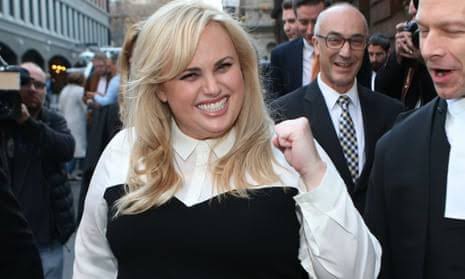As Bollywood actress Rhea Chakraborty grapples with the emotional aftermath of a media-led witch hunt following the death of her boyfriend Sushant Singh Rajput in 2020, a clarion call for justice and accountability arises. Recently, India's federal investigative agency, the Central Bureau of Investigation (CBI), announced that Rajput's death was confirmed as a suicide, clearing Chakraborty and her family of allegations related to his passing.
Chakraborty's lawyer, Satish Maneshinde, expressed that the investigation was comprehensive, pointing out the detrimental effect of media narratives that led to public vilification and her unjust incarceration for 27 days. He urged media outlets to reflect on their role in perpetrating a false narrative that harmed innocent individuals.
Feminist lawyer Payal Chawla highlighted the troubling misogynistic tones surrounding Chakraborty during the media frenzy, urging society to combat judgmental attitudes that allow such narratives to proliferate. The retrospective look at the backlash against Chakraborty also prompted discussions about the larger implications of societal misogyny reflected in media portrayals of women.
Amidst the chaos, Chakraborty finds strength within her family, having presented herself publicly at a temple ceremony with her brother and father who also faced scrutiny during the case. Her brother, Showik, commemorated their journey with a hopeful caption, "Satyamev Jayate," signaling that truth eventually prevails.
While the mainstream media fervor around Rajput's death continues to echo, Chakraborty has taken the personal toll to a public platform, recounting the challenges faced in the film industry post-scandal. With perspectives on healing, she has embraced new ventures including motivational speaking and pursued a clothing line, striving to rebuild her narrative while calling for accountability for those who perpetrated her misery through baseless accusations.
As public discourse revisits the involving narratives of media and accountability, numerous voices in Bollywood and beyond are demanding apologies from media houses that characterized Chakraborty as manipulative, feeding on a sensationalist narrative damaging her reputation. Activists argue that the media's treatment of women should provoke broader societal changes, advocating for a paradigm shift in how female public figures are portrayed.
Starkly, as the CBI's investigation inching towards closure, the essential question remains: Will the echoes of misogyny, abuse, and character assassination that plagued Chakraborty lead to meaningful connections and reforms in media ethics, or will history repeat itself unchallenged?
The conversation is poised on a precipice that could shape the future of media narratives, reflect on gender dynamics, and ultimately redefine the landscape of accountability that holds power to task for the misrepresentation of women's voices and experiences.



















